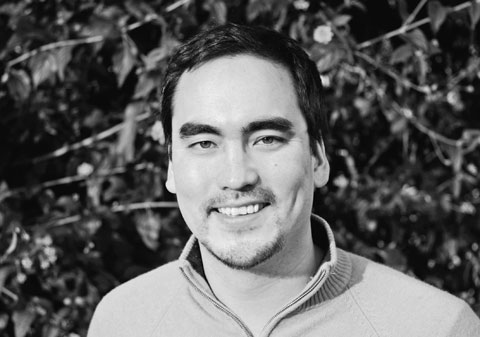
Tim Wu, historian of information empires
|
It's 1934 and an engineer at Bell Labs by the name of Clarence Hickman has a secret machine in his office. It is the only one of its kind in existence. It's seven feet tall. And it does the following: if you call Mr. Hickman on the telephone, and should he not be in his office, it will beep and allow you to leave a message. Bell Labs has the world's first answering machine. Perhaps more important is what's inside the machine: magnetic recording tape. Eventually, this technology will lead not only to cassettes and VHS but also to the hard drive — arguably the foundation of the information age. Indeed, in 1934 there are only two instances of magnetic tape in the world: the other is in Nazi Germany. Both are top secret.
What happened to Hickman's invention? Nothing. Magnetic tape didn't appear in America until after the war, and it came from Germany. The answering machine was kept from the general public until the 1980s, when the FCC forced AT&T to allow "foreign attachments" on its telephones. Bell Labs suppressed the invention — which came to light only decades later, when a historian stumbled across Hickman's lab notebooks — because it feared the tape recorder would hurt telephone sales. In the '30s, Bell believed businessmen wouldn't use the phone if they knew there was a possibility their conversations would be recorded. Bell also believed that some fraction of all telephone conversations — perhaps as high as two-thirds — were indecent or obscene. In part, Bell set American information technology back by decades because it was afraid of phone sex.
Tim Wu is telling this story to a rapt, jam-packed classroom at Harvard University's Berkman Center for the Internet and Society. The audience has braved bitter cold on a Tuesday afternoon to hear him talk about his book The Master Switch, which came out late last year and stunned the tech and media worlds. To say that Wu has written a history of the information age is sort of like saying that Howard Zinn wrote a history of the United States. Wu is a young scholar but the first line of his obituary is already written: a few years back he coined the term "Net neutrality," then got the FCC to embrace it. In The Master Switch, he explains why it is necessary to keep information pipelines from being controlled by unrestrained corporations, wielding the weight of history to back him up.
What The Master Switch says is something like this: the Internet revolution may seem exceptional, but it isn't. There have been at least four major information empires in the last 100 years. All of them began like the Internet: as open systems built on disruptive innovations, often displacing large industries. Bell, after all, began as a two-man startup in a Boston attic. But eventually these innovations — telephone, radio, television, cable — produced government-sanctioned monopolies, and those monopolies suppressed innovation to save their own skins. The same thing, Wu suggests, will happen to the Internet unless we do something about it.